Famous Irish Composers
 John Field, (born July 26, 1782, Dublin—died Jan. 23, 1837, Moscow), Irish pianist and composer, whose nocturnes for piano were among models used by Chopin.
John Field, (born July 26, 1782, Dublin—died Jan. 23, 1837, Moscow), Irish pianist and composer, whose nocturnes for piano were among models used by Chopin.
Field first studied music at home with his father and grandfather and afterward in London with Muzio Clementi, under whose tuition, given in return for Field’s services as a piano demonstrator and salesman, the boy made rapid progress. In 1802 Clementi took Field to Paris and later to Germany andRussia. Field quickly secured recognition as a pianist and composer and in 1803 settled in Russia, becoming for a time a popular and fashionable teacher. He played extensively throughout Europe during the next 30 years and had great success with one of his E flat piano concerti at a Philharmonic Society concert in London in 1832. He is credited with being one of the earliest to develop the use of the sustaining pedal, both in the prescription of it for his music and in his own performance.
Field was one of the earliest of the purely piano virtuosos, and his style and technique strikingly anticipated those of Chopin. As a composer he was at his best in shorter pieces, where his expressive melodies and his imaginative harmonies, often chromatic, are not exposed to the strain of long development. Field wrote seven piano concerti and four sonatas, in which high quality is often apparent but not consistently maintained. In the nocturnes, more concise and intimate than his larger works, Field’s music is distinguished in style and varied in mood.
 Thomas Moore, (born May 28, 1779, Dublin, Ire.—died Feb. 25, 1852, Wiltshire, Eng.), Irish poet, satirist, composer, and political propagandist. He was a close friend of Lord Byron and Percy Bysshe Shelley.
Thomas Moore, (born May 28, 1779, Dublin, Ire.—died Feb. 25, 1852, Wiltshire, Eng.), Irish poet, satirist, composer, and political propagandist. He was a close friend of Lord Byron and Percy Bysshe Shelley.
The son of a Roman Catholic wine merchant, Moore graduated from Trinity College, Dublin, in 1799 and then studied law in London. His major poetic work, Irish Melodies (1807–34), earned him an income of £500 annually for a quarter of a century. It contained such titles as “The Last Rose of Summer
” and “Oft in the Stilly Night.
” The Melodies, a group of 130 poems set to the music of Moore and of Sir John Stevenson and performed for London’s aristocracy, aroused sympathy and support for the Irish nationalists, among whom Moore was a popular hero.
Lalla Rookh (1817), a narrative poem set (on Byron’s advice) in an atmosphere of Oriental splendour, gave Moore a reputation among his contemporaries rivaling that of Byron and Sir Walter Scott. It was perhaps the most translated poem of its time, and it earned what was till then the highest price paid by an English publisher for a poem (£3,000). Moore’s many satirical works, such as The Fudge Family in Paris(1818), portray the politics and manners of the Regency period.
In 1824 Moore became a participant in one of the most celebrated episodes of the Romantic period. He was the recipient of Byron’s memoirs, but he and the publisher John Murray burned them, presumably to protect Byron. Moore later brought out the Letters and Journals of Lord Byron (1830), in which he included a life of the poet. Moore’s lifelong espousal of the Catholic cause led him to produce such brilliant works as his parody of agrarian insurgency, The Memoirs of Captain Rock (1824), and his courageous biography of the revolutionary leader of the 1798 rebellion, The Life and Death of Lord Edward Fitzgerald (1831).
 Michael William Balfe, (born May 15, 1808, Dublin, Ire.—died Oct. 20, 1870, near Ware, Hertfordshire, Eng.), singer and composer, best known for the facile melody and simple ballad style of his opera The Bohemian Girl.
Michael William Balfe, (born May 15, 1808, Dublin, Ire.—died Oct. 20, 1870, near Ware, Hertfordshire, Eng.), singer and composer, best known for the facile melody and simple ballad style of his opera The Bohemian Girl.
Balfe appeared as a violinist at age nine and began composing at about the same time. In 1823 he went to London, where he studied violin with C.F. Horn and played in the orchestra at Drury Lane Theatre. In 1825 he was taken to Italy by Count Mazzara, a wealthy patron. There he studied composition, took voice lessons, and produced his first ballet, La Pérouse (1825). Between 1827 and 1833 he sang leadingbaritone roles in operas by Gioachino Rossini, Giacomo Meyerbeer, and others in Paris and Italy. His own early operas were written on Italian librettos and produced at Palermo, Pavia, and Milan between 1829 and 1833, after which he returned to London. His first English opera, The Siege of Rochelle, was produced at Drury Lane in 1835. His popularity was established; in 1838 he sang Papageno in the first English performance of The Magic Flute, and with Le Puits d’amour (1843) he began a series of French operas.
The Bohemian Girl (first performed 1843) was the most successful of his operas and was produced in many countries, in French, German, Italian, and Russian. Two of the ballads from it, “When Other Lips
” and “I Dreamt That I Dwelt in Marble Halls,
” have been published in many arrangements.
Balfe produced several other operas in London; essayed managing and conducting with little success; and between 1849 and 1864 traveled in France, Germany, Italy, and Russia.


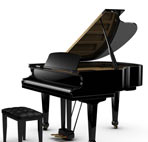
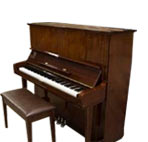
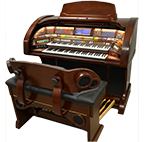
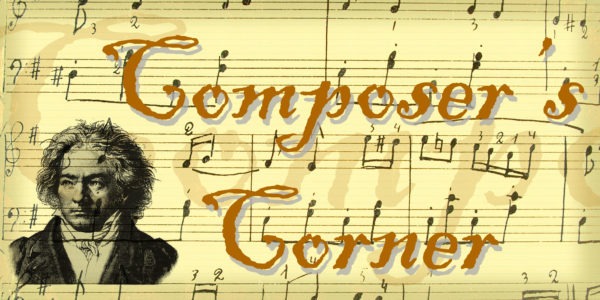

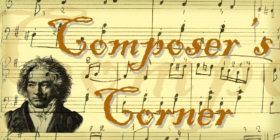
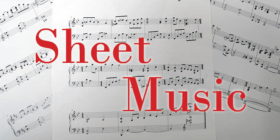
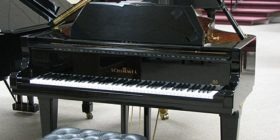

Leave a reply